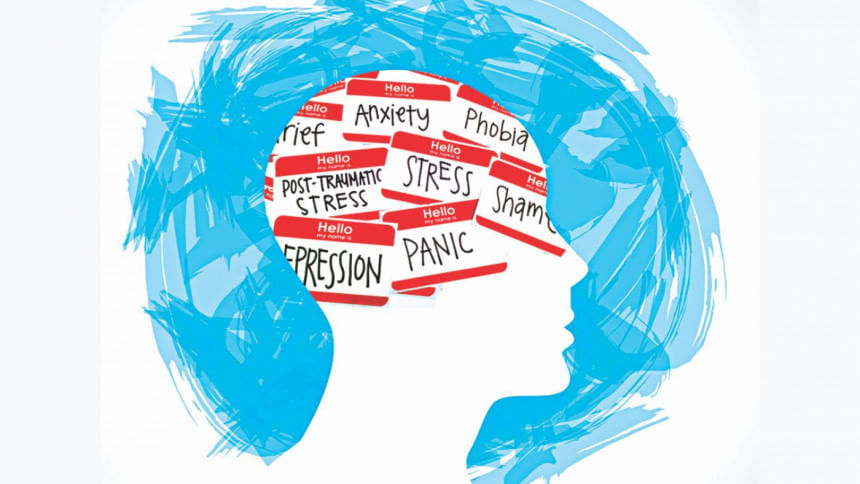Why Do Mental Health Patients Not Seek Help?

According to a National Mental Health Survey, about 16.05 percent of the adult population in the country are suffering from mental disorders. And this survey only includes the people who have been diagnosed with having mental disorders. There is a huge group of people who didn't even make it to the survey because a lot of mental health patients don't seek help or talk to anybody about their mental health.
Stigma regarding mental health
Even though we all talk about the devastating effects of stress and anxiety, it does not stop us from labeling people with stress or anxiety as "less efficient" people. We sympathise with their condition, but when it comes to assigning work, we feel like they are not cut out for the job. This silent judgment criterion that roots from the stigma related to mental health issues is the biggest reason why most people don't seek help. This also makes people convince themselves that they are not really depressed but rather "temporarily sad". So, they suffer in silence and hopes to god that one morning they will wake up and the pain will go away.
Fear of sounding desperate
Our friends and family care for us. That much we all know. But given that the stigma for mental health exists, people can't but help feel like asking for help might annoy the other person or make them see you in a different manner. This fear roots from the fact that depression can be long-lasting. And even if you talk to someone about it once or twice, when it comes to the third time, the fear of being tagged as "attention seeking" or "someone who complains all the time" or someone who is "desperate" is something that stops you from talking to someone the third time. While talking to Iffat Sumaiya, currently a student of Anthropology at BRAC University, we learned about how she believes that there is a cultural distrust of therapy and mental illness. According to her "Mental Health patients are seen as crazy, unsteady. The ideas of being self-reliant, discreet about one's struggles is bred into us and reinforced."
Lack of knowledge about mental health facilities
Even if a person can overcome all these fears and decide to seek help, they simply don't know where to go or whom to go to for professional advice. In its current state, Bangladesh does not have adequate mental health professionals or facilities to provide for the rising number of mental health patients. The ones that we do have gets crowded out and the information about the existence of certain health centers or doctors never reach the people because of the lack of exposure and visibility that results from the stigma and ignorance of mental health. According to research by Urban Primary Health Care Services Delivery Project, Bangladesh,
In Bangladesh, health care services mostly depend upon out of pocket expenses, so does mental health care. Only 0.1 percent of patients get free services. No mental disorder is covered in social insurance schemes either. Mental health expenditures from the government health department are less than 0.5 percent. Moreover, around 67 percent of all the expenditures spent on mental health are devoted to mental hospitals and rarely for further research and mental health promotion.

Misconceptions about treatment
Given in countries like Bangladesh, seeking treatment for mental health is still something that is relatively new, a lot of families are skeptical about the effects of the treatment. Many people assume that the medication can have an adverse impact on a person's body and mind. While talking to Farzana Khan, a 3rd-year university student, about these misconceptions, she said that she had been wanting to see a therapist for a really long time but she read on the internet that the medications for depression might cause memory loss and lessen her attention span. This was the single biggest reason for her to not seek help.
It is costly
But let's say one brave soul who is extremely determined to lead a healthy life ends up finding a place where he or she could get help, regardless of the determination and effort , the cost of each appointment with a therapist in and of itself not only discourage people from seeking help but also makes it absolutely inaccessible to certain people. Iffat Sumaiya furthers expresses her frustration with the mental health condition in our country by talking about how expensive the experience has been for her saying "I have been to more than 5 therapists to find a fit. The least I have been charged is Tk 1000 and the highest has been Tk 3000. Per hour. And who can afford to pay that sort of money for a practice they don't totally believe in, to begin with."
So, what IS the solution to this?
Well for starters, subsiding the mental health sector can be one of the ways to increase the exposure of such facilities while driving down the cost for people. Having health insurances that cover your appointments can also result to be very helpful. But these solutions will only be helpful if proper awareness is spread regarding mental health treatment procedures and being less ignorant as a friend. We have to be less ignorant as a parent. We have to be less ignorant as a society.
Megha Rahman is a hopeless University student who loves to look at Doggo Memes and Food Videos that involve Cheese. Send her memes at [email protected]





Comments